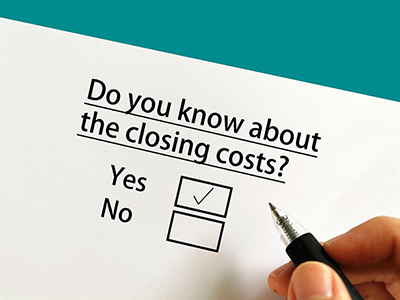You’ve found the perfect home, navigated through the maze of paperwork, and you’re eagerly anticipating closing day. While you’re undoubtedly excited about stepping into your new abode, there’s one critical aspect of the home buying process that often catches many first-time buyers off guard: closing costs.
Closing costs are the fees and expenses associated with finalizing the purchase of your new home. They typically range from 2% to 5% of the home’s purchase price, and they’re paid at the closing table. Understanding what these costs entail and how they factor into your budget is essential for a smooth and stress-free home buying experience.
What Do Closing Costs Include?
Closing costs encompass a variety of expenses, and they can vary depending on factors such as location, lender requirements, and the specific terms of your mortgage. Here are some common components of closing costs:
- Loan Origination Fees: This is the fee charged by the lender for processing your mortgage application. It typically amounts to around 0.5% to 1% of the loan amount.
- Appraisal Fee: Your lender will require an appraisal to assess the value of the property. The cost varies but generally falls within the range of $300 to $500.
- Title Insurance: This insurance protects both you and your lender against any disputes over the property’s ownership. The cost varies based on the home’s purchase price but typically ranges from $500 to $2,000.
- Home Inspection Fees: While not always required, many buyers opt to have a professional home inspection before closing to identify any potential issues with the property. Inspection costs vary based on the size and location of the home but generally range from $300 to $500.
- Recording Fees: These fees cover the cost of recording the deed and mortgage documents with the appropriate government office. Costs vary by location but typically range from $50 to $500.
- Escrow Deposits: Your lender may require you to deposit funds into an escrow account to cover property taxes and homeowners insurance premiums. These deposits can amount to several months’ worth of payments.
Budgeting for Closing Costs
Given the variety of expenses involved in closing costs, it’s crucial to budget accordingly to avoid any last-minute financial surprises. Here are some tips to help you prepare:
- Request a Loan Estimate: Within three days of applying for a mortgage, your lender is required to provide you with a Loan Estimate, which outlines the expected closing costs. Review this document carefully to understand what you’ll be expected to pay.
- Negotiate with the Seller: In some cases, you may be able to negotiate with the seller to cover a portion of the closing costs, especially in a buyer’s market or when multiple offers are on the table.
- Plan for Contingencies: While your Loan Estimate provides a good estimate of your closing costs, it’s wise to budget for unexpected expenses that may arise during the closing process.
- Consult with Ruth: Ruth, your mortgage broker, can provide valuable insights into typical closing costs in your area and offer guidance on how to budget effectively.
Final Thoughts
Closing costs are an inevitable part of the home buying process, but with careful planning and preparation, you can navigate them successfully. By understanding what closing costs entail and budgeting accordingly, you can ensure that your closing day is a smooth and seamless experience as you take the final steps toward homeownership. Congratulations, and welcome home!
If you are purchasing a home or looking for a new mortgage, call Ruth. Ruth Schoenherr is a mortgage broker who will help you find home loans in the Clearwater and Tampa Bay area, and serving all of Florida. For more information, go to her web site at www.ClearwaterMortgageBroker.net or call at 727 447-2418.
Ruth Schoenherr NMLS Florida Mortgage Lender License 336647
Innovative Mortgage NMLS 250769

